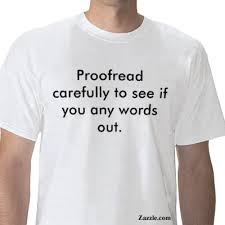Writing applications has lots of similarities with writing academic essays – you should give yourself plenty of time, do your research, make sure you’ve answered the questions properly, and that everything is spelling and grammar checked.
It sounds like common sense, but I know students often feel unsure of this kind of writing. Never fear; here is your tough-love guide to writing proficient application forms:

Give yourself plenty of time:
Look, no one is suggesting you need to write for seven solid days, but I’d recommend you give yourself a week to perfect your application form as a minimum.
You need time to do all your research, draft some initial thoughts and give yourself a bit of breathing room before you submit a final draft. If you want a Careers Advisor or friend to look it over you should allow even longer, in case it takes a few days for them to get back to you.

Do your research:
This advice is rarely popular but I’m afraid it’s non-negotiable: research the company, research the job.
If you want to be a Student Ambassador but you don’t really understand what Student Ambassadors do, how can you prove you’re right for that role? Equally, you won’t impress anyone if you want a publishing job but don’t know that Penguin merged with Random House in 2013.
Seriously – there’s no excuse for not sticking some basic search terms into Google. (Other search engines are available…)

Tailor your answers:
And this is why all that research is important! Regardless of whether you have a blank box called ‘personal statement’ to fill in or a series of shorter, more specific questions to answer, this is your opportunity to be unique – and to make the employer feel unique too.
I mean, doesn’t everyone want to feel special?
Time for a hard truth: according to a 2014 Telegraph article, 39 graduates apply for every graduate job. If you’re looking at someone like the BBC, that figure rises as high as 600 applicants per individual post. Competition can be just as fierce for student jobs on campus – Student Recruitment receive hundreds of applications for a relatively small number of Ambassador positions every year.
I’m going out on a limb here, but I suspect a recruiting manager for the BBC with 600 applications on her desk is going to straight up reject any that don’t clearly demonstrate how working for the BBC matches that applicant’s skills, experience, goals and dreams – especially when there are 599 other applications that do.
How do you tailor your answers? Easy – look at what you know about the company and job, then consider the skills and experiences you have to offer and use those two pieces of information to form your answer.
That’s how you go from:
I want to be an ambassador because the hours are flexible around my studies
To:
As a student at York St John I love the sense of community that is an important part of the culture. I want to be part of that by becoming a Student Ambassador and sharing my knowledge of the campus and my course to prospective students at Open Days. My previous experience working in a café means I have developed skills to allow me to build a rapport with a wide range of people, so I will be confident talking to parents as well as new students.**
**don’t copy and paste this. You’re better than that.

Check, check, check:
Do I really need to labour this point? If an employer will reject an application form for not being properly tailored, you can imagine how they’ll treat one with a million and twelve typos.
Theres typoes all over this sentense, annoying isnt is?
Check your application form. Then check it again.
- Run your answers through Word (or Grammarly if you’re feeling flash).
- Read it out loud to yourself (works for me!).
- Print off a copy and see if you notice anything on paper you missed onscreen.
- Get a friend to read it for you.
- Get your mum to read it for you!
It really doesn’t matter how you do it – and it also doesn’t matter how amazing you think you are at spelling and grammar. I have two degrees in English and Creative Writing, and I still get my mum to proofread applications for me.

How to answer specific kinds of questions:
- Motivation-based questions (e.g. why do you want this job?)
- Do your research and explain what you like about the company and role. Then, link it very clearly to the reasons you would be a good fit. (See example above)
- Experience-based questions (e.g. give an example of your team work)
- Use CAR: Context, Action, Result. Clearly establish where you were, what you did and how you know it worked – or how you know it didn’t, as the case may be.
- Strengths-based questions (e.g. which of your achievements are you most proud of?)
- This requires you to have an understanding of what the employer might be interested in as well as some self-awareness. So, if you are applying for a job working face to face with service users, you might want to highlight your pride in winning Customer Adviser of the Month at a previous part time job.

….and don’t forget:
- Back up every point with evidence, because we can all claim we’re enthusiastic, motivated and dynamic. Writing buzzwords without providing evidence is like rocking up to a dance-off without your crew. Or something like that.
- Keep it professional – be aware of your tone. This isn’t for academic credit, even though the process is similar, and it isn’t a group message full of laugh/cry face emojis either. Somewhere in the middle would be about perfect [insert thumbs up emoji here].
- Allow editing time, because obviously.
- Proof-read – see above.
- Keep a copy for later… because if you do that with every job you apply for, you’ll make your life easier in future. Hey, I’m a Careers Advisor – I’m always thinking about your future.
Above all, consider: this might be your only shot at this job – have you really given this application your all?

